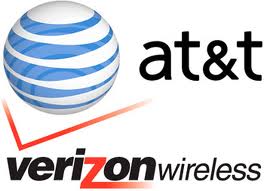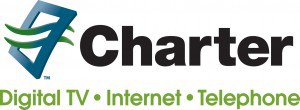 Although Americans are paying higher cell phone bills than ever before, some of America’s largest wireless providers have been saving a fortune, enjoying near-tax-free status thanks to an economic stimulus package that allowed companies to write off expenses associated with expanding their businesses.
Although Americans are paying higher cell phone bills than ever before, some of America’s largest wireless providers have been saving a fortune, enjoying near-tax-free status thanks to an economic stimulus package that allowed companies to write off expenses associated with expanding their businesses.
Under accelerated depreciation, both AT&T and Verizon have been able to slash tax obligations by claiming deductions for capital investments most analysts believe they would have made with or without the income tax windfall. Despite this, both companies have raised prices and have cut jobs and employee benefits.
Washington lawmakers are now debating tax policies that could reduce or end corporate subsidies and raise their tax payments.
The stimulus incentives were designed to promote spending and investment by large corporations retrenching in the face of the Great Recession. Through a combination of special interest amendments guaranteed to favor certain businesses and creative accounting, the two largest wireless companies in the country wrote off investments originally planned before the stimulus package was enacted.
Without the corporate welfare package, telecom analyst Craig Moffett predicted AT&T would have paid a 35% tax rate over the past four years, amounting to $29.3 billion in taxes. Instead, it paid $13.3 billion total. Last year it paid 0% — nothing.
 Verizon Wireless has skirted around its tax bill thanks to its offshore partner Vodafone. By shifting certain money overseas, and through other creative measures, Verizon ended up paying a 6% tax rate — $1.3 billion total taxes in four years. Not bad for America’s largest wireless operator. Two years ago, Verizon was estimated to have paid nothing at all.
Verizon Wireless has skirted around its tax bill thanks to its offshore partner Vodafone. By shifting certain money overseas, and through other creative measures, Verizon ended up paying a 6% tax rate — $1.3 billion total taxes in four years. Not bad for America’s largest wireless operator. Two years ago, Verizon was estimated to have paid nothing at all.
Citizens for Tax Justice and the Institute on Taxation and Economic Policy claim corporate tax subsidies effectively cost taxpayers $14.5 billion for AT&T and $12.3 billion for Verizon Wireless over the past four years. Only one company benefited more than AT&T and Verizon: mortgage underwriter Wells Fargo.
If the ability to take accelerated depreciation were to be withdrawn in current tax negotiations, AT&T and Verizon would both find themselves paying taxes at rates comparable to many upper-middle class Americans.
AT&T would see its tax rate rise from 13.3% in 2013 to 29 percent by 2016. Verizon will pay 25% in 2013 and 27% by 2016. Both companies would still continue to aggressively pursue loopholes and other write-offs, including larger contributions to both companies’ pension plans which would reduce cash liabilities.
 Although “soft-launched” several weeks ago in many markets, Time Warner Cable has officially unveiled its holiday gift for 2012: a free 50% speed increase for Standard tier customers: 15/1Mbps service.
Although “soft-launched” several weeks ago in many markets, Time Warner Cable has officially unveiled its holiday gift for 2012: a free 50% speed increase for Standard tier customers: 15/1Mbps service.

 Subscribe
Subscribe





